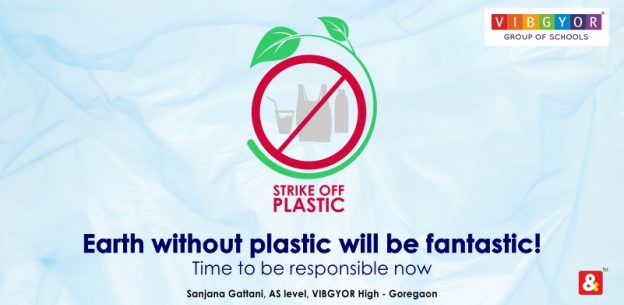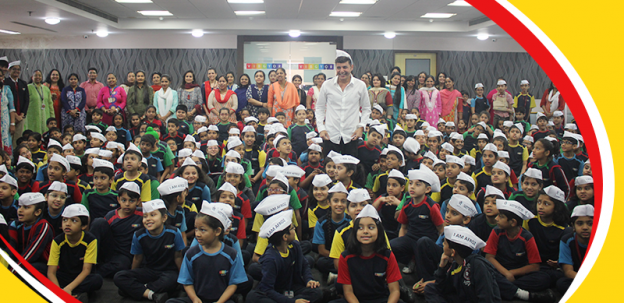![]()
I dare you to imagine a sight. A land filled with every hue, a rainbow that should be beautiful but only repulses you. Water rushing to the shore brings the fabrics and the bottles and the empty torn bags with it. Dead creatures that have been long gone, and out of their mouths drips grey-green water and just the tiny strains of transparent plastic. It choked them. It killed them. In the middle of this garbage desert, you can see a bird, a white seabird with a long, graceful beak – and it is whimpering. Pain. It is in intense pain. A strand of the shiny blue net – the common plastic that anglers often use – is hanging out of the side of its beak, drawing blood. It is looped around its neck, tight, and suddenly you realise that the bird is choking. It tries to voice its pain, but the cord is too tight and it is draining the life out of it. A pair of brown, bloodshot, innocent eyes stare at you, for help, but you do nothing. You ignore the urgent flutters of the bird, beating against the strong winds, but how will the wind ever help? The intense oscillations of the chest of the bird slow, its feathers browned and bloodstained. One last look at you and it is gone.
This is what plastic has done to our planet, and this is exactly what we do in return. It has ruined the Earth, it has destroyed it and it has dragged it to a point beyond physical repair.
There is no doubt that plastic revolutionised medicine with life-saving devices, made space travel possible, lightened cars and jets—saving fuel—provided cheap packaging options and equipment for clean drinking water. While plastic has many valuable uses, our addiction to disposable polymers has exponentially increased and caused glaring environmental consequences that we have knowingly ignored.
A 2015 study by the National Academy of Sciences, USA, proved that almost every seabird has consumed plastic, resulting in premature death, and so have several turtles, who, after consuming the toxic chemicals released by plastics did not survive more than a few weeks after. And what did we learn? Thousands of deaths, by the hour, of sea and land creatures who were victims of our deeds. Hundreds of acres of land taken to store the discarded plastic, which will live forever and keep poisoning the soil and the creatures living in it. After four years of this study is published, we have learnt nothing.
Sunlight and seawater embrittled plastic to form ‘microplastics’ making it available to zooplankton and other small marine animals including some species found only in the deepest ocean trenches.
Statistically, one million bottles are purchased per minute and about five trillion plastic bags are used and disposed each year around the world. Since the 1960s, more than 8.3 billion tonnes of plastic has been produced and 60% of this is in landfills and oceans, never to be decomposed for the next many millennia. The majority of garbage dumped into the ocean spreads beyond national boundaries, forming the infamous swirling ‘garbage patches’ in oceanic gyres. India stands at the height of these scales, with 1,880,559 kg of plastic being disposed of each day, 85% of which is completely mismanaged.
The oceans and the landfills are not the only victims of our polymeric experiments. The primary sources of freshwater, our rivers, have also been majorly affected by coagulation and contamination by plastics. Our holy Ganges and Brahmaputra have been, now for many years, classified as some of the most polluted rivers carrying 72,845 tonnes of plastic waste into the oceans, increasing the probability of vector-borne diseases like malaria.
Plastic pollutants make their way to the drainage system and clog those causing floods during rains in areas hitherto prone to the same and causing severe losses year after year.
Is this our legacy we leave for the generations to come? Why should they bear the consequences of our lack of action? Creating awareness and education are paramount in managing the plastic crisis. People around the world are already innovating solutions that focus on reusing and reducing plastic. Starting in 2016, the Government of India has also reacted to the situation, starting with 10 local policies and a nationwide ban on selective forms of the polymer. As the end-consumer, it is our moral responsibility to stop using single-use plastic. Plan the change! Make the change! Be the change!

